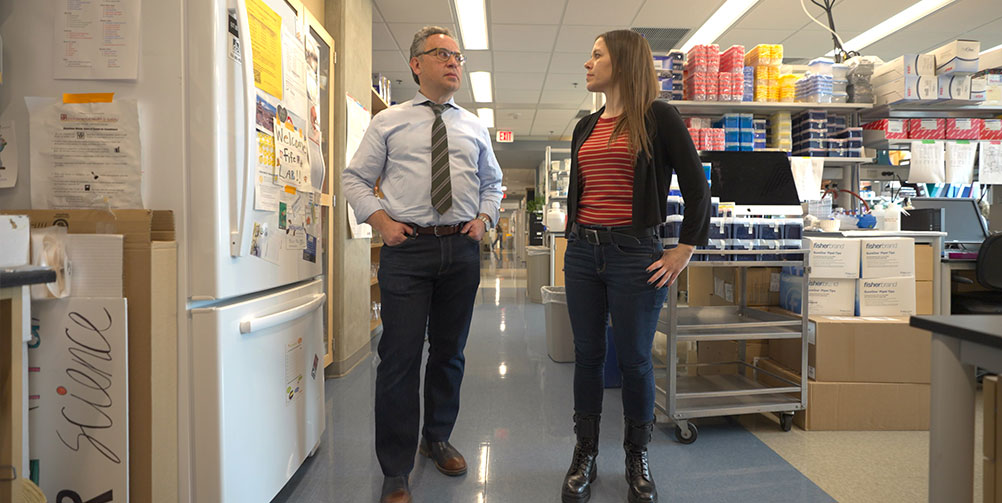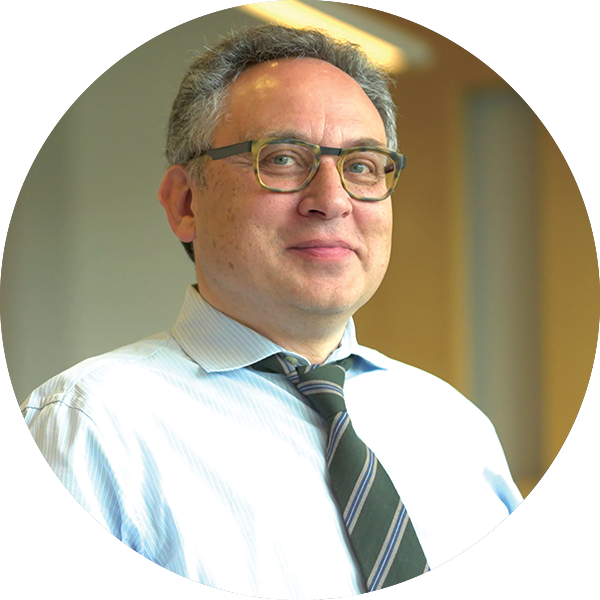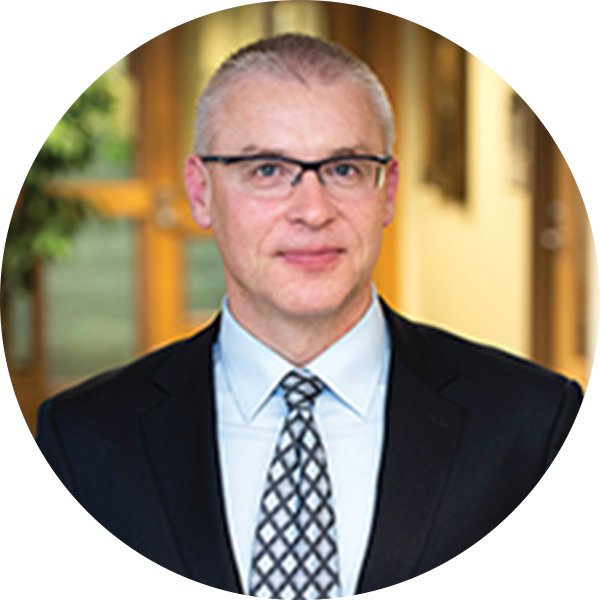A Deadly Germ: And the Dynamic Duo with a Promising Therapy
Amanda Kabage finally had an accurate diagnosis after months and months of debilitating diarrhea.
The University of Minnesota researcher suffered from Clostridium difficile infection (C. diff).
Amanda, 32 at the time, did what any scientist would do: Investigate the disease that had sidelined this avid runner and world traveler.
She was in when she learned that Dr. Alexander Khoruts pioneers a highly effective treatment—a microbiota transplant. She was really in when she found that the gastroenterologist works at the U of M.
And she was all in when, after a successful transplant, she had the opportunity to join Dr. Khoruts in advancing this promising medicine.
Says Dr. Khoruts, director of the U of M’s Microbiota Therapeutics Program: “Amanda has a unique perspective as both a patient and a researcher.”
Adds Amanda, now his research program manager: “Dr. Khoruts is amazing and very compassionate, but still, he’s never been through it himself.”
Constantly worrying where a bathroom was
C. diff is a sickness of our gut microbiome—trillions of microorganisms critical to everything from digestion to fighting off infections.
The culprit, according to Dr. Khoruts, is the growing and often inappropriate use of antibiotics, which he likens to tossing “grenades” on that ecosystem.
From those ruins, C. diff, a germ that releases dangerous toxins and generates contagious spores, can take over.
“There are about a half million people who develop it every year,” Dr. Khoruts says.

the transplantation of stool from a healthy person to someone who’s sick
Dr. Khoruts says the idea behind his work has been around since the 1950s, when antibiotic use became widespread.
Development of the treatment, however, stalled when, strangely enough, antibiotics themselves were found to be effective in fending off the disease.
That all changed in the early 2000s when more virulent and antibiotic-resistant strains of C. diff emerged.
“Based on our research, a one-time treatment,” Dr. Khoruts says of a microbiota transplant, “is 85 to 90 percent effective. If we repeat it, we can get that to 98 percent.”
If we didn’t get her an answer, she probably doesn’t have an answer
Amanda’s research led her to Dr. Khoruts, who thought she was an excellent candidate for transplant.
Using microbes from stool donated by a healthy anonymous donor, Dr. Khoruts performed her microbiota transplant via colonoscopy.
Samples taken before and after showed that the new microbes had made themselves at home.
Even better, says Dr. Khoruts: “She was cured.”
I was lucky: I was willing to be open about it
Amanda hopes that, through awareness and advancements in the work, C. diff patients will get help faster and easier than her 14-month-long ordeal.
One development, already in place, is that instead of an invasive colonoscopy, the U of M has simplified the transplant to swallowing just five pills.
As the program’s research manager, Amanda has many roles, including expansion of the University’s stool donation program—the first of its kind and one that supplies microbiota for further research and for transplant, which now consists of taking a few capsules.
Her favorite part of the job, however, is openly sharing her struggle with a disease that, because it’s a diarrheal illness, is hard to talk about.
She says: “I can see it in their faces. Their mannerisms. That moment when they relax and realize: ‘This might actually work for me, too.’”
Your Gut Microbiome (and how to care for it)
Tip 1: What is your microbiome?
Tip 2: Should you take probiotics for gut health?
Tip 3: Feed your microbiome with fermented foods
Tip 4: Diverse, unprocessed, plant-based foods can help
PUTTING DISCOVERY INTO PRACTICE
M Physicians are an extension of the University of Minnesota Medical School. As Medical School faculty, they are always looking for new and better ways to treat patients, whether in the laboratory or the clinic. And through clinical trials, cutting-edge therapies are sometimes available to patients when the standard of care is no longer enough.
What is Academic Medicine?
Most medicine is practiced within what is called “the standard of care.” Simply put, “standard of care” is the treatment that is commonly accepted for treating illness. This is a good thing! It means that patients receive treatments that are known to be generally effective and reliable.
The goal of academic medicine is to treat patients while looking for better therapies. It takes the toughest problems from the clinic and looks for solutions in our research. Many of our physicians — leaders in their fields — are also scientists.
When a patient faces an illness that requires treatment that exceeds the standard of care, academic medicine can provide access to newer therapies.




